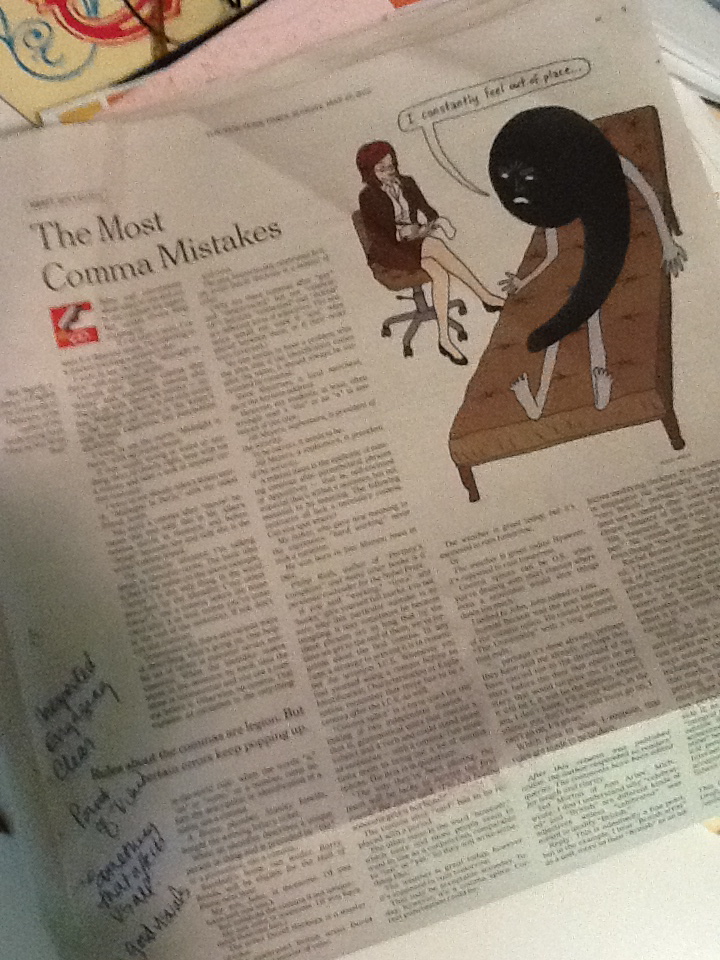 It’s crazy how excited I got reading Ben Yagoda’s article, ”The Most Comma Mistakes” in Sunday’s New York Times. How could writing about standard comma usage errors be so interesting? Here’s why I thought so, why you should read the article and why this all applies to your public speaking practice.
It’s crazy how excited I got reading Ben Yagoda’s article, ”The Most Comma Mistakes” in Sunday’s New York Times. How could writing about standard comma usage errors be so interesting? Here’s why I thought so, why you should read the article and why this all applies to your public speaking practice.
Unexpected The title intrigued me. A play on words? What’s here? What are the “most comma” mistakes the author is alluding to? My curiosity drives me into the text.
Engaging Right away the author gives us correct and incorrect usage to test our understanding. What’s wrong with the commas in this sentence? “I went to see the movie, “Midnight In Paris” with my friend, Jessie. (Answer: no commas are needed in that sentence.) The interplay of find the mistake and understand why it’s a mistake is fun and clarifying.
Passionate Yagoda is a professor of English. He seriously cares about the craft of writing. Punctuation matters. I love it!
I Care Too I write proposals, blog posts, long emails and an occasional letter to an old friend just to remind myself I am not a complete technocrat. Punctuation is my downfall. I care too, I just didn’t know it.
Good Visuals The accompanying cartoon of a complaining comma on the therapy couch was another clever double entendre.
Good speakers employ a combination of all of the above – passion, audience engagement, something unexpected, something to learn, a new insight and good visuals. I work with a lot of bio-tech, life science and pharmaceutical clients. When one manager said to me recently, “What I understand now is that science presentations should never be boring”, I thought, “Bingo!”
Every presentation you make needs to be engaging and interesting. Artists, writers, and even presenters can make the most mundane and common subject invigorating and illuminating. I don’t care what your subject is – you can and should make it sing.
P.S. There are 2 comma mistakes in this text. Can you find them? I will post the answers in a reply.


